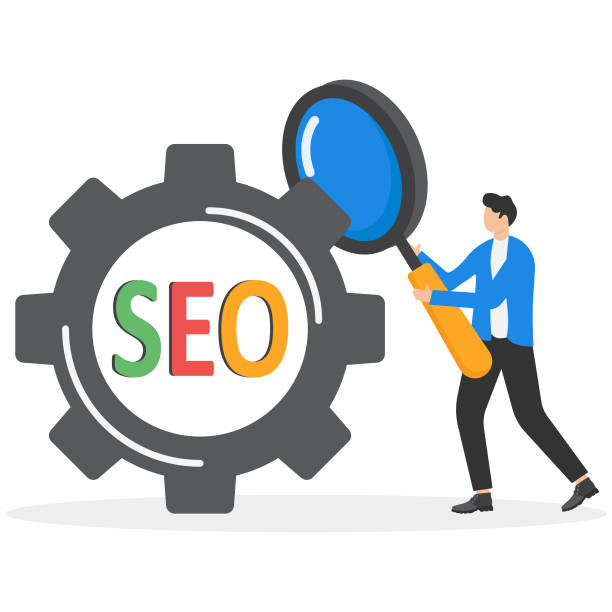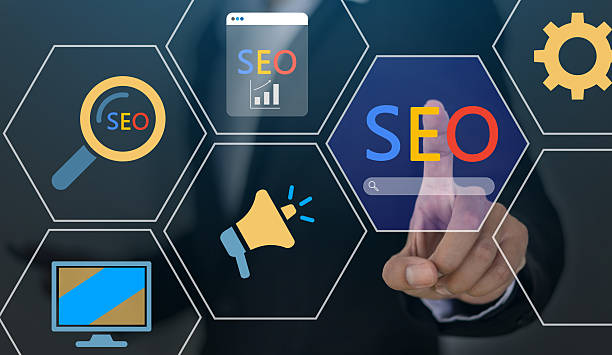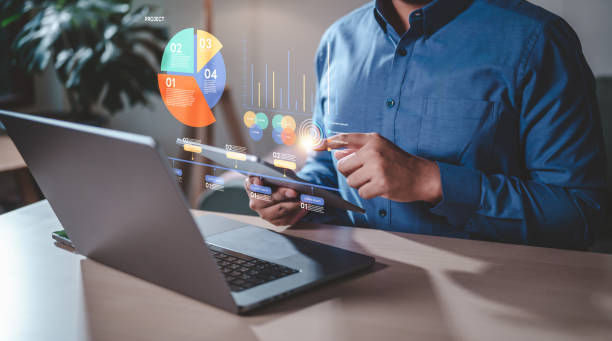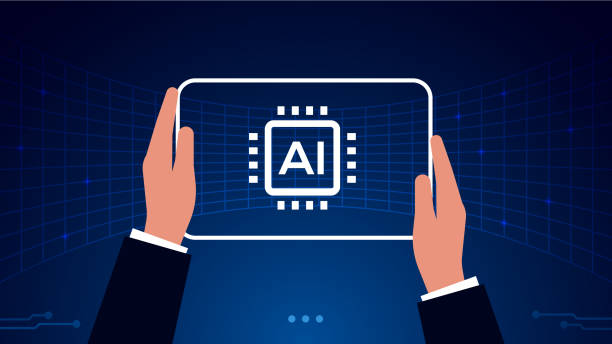Introduction to Off-Page SEO and Its Importance

Off-Page SEO encompasses a set of activities performed outside your website, with the ultimate goal of improving your site’s ranking in search engine results (SERPs).
This aspect of SEO, unlike On-Page SEO which focuses on optimizing elements within the site, deals with signals that reach your site from external sources.
The primary and most crucial component in Off-Page SEO is backlinks.
Backlinks are literally considered ‘votes of confidence’ from other websites for your site’s content or authority.
Every backlink given from another website to your site sends a message to search engines like Google that your content is valuable, authoritative, and trustworthy.
Therefore, the greater the number and especially the quality of inbound backlinks to your site, the higher your Domain Authority in the eyes of search engines, and consequently, your chances of ranking higher for competitive keywords significantly increase.
The importance of #Off_Page_SEO lies in the fact that search engines don’t just look at your site’s content; they want to know if others also endorse your content.
Without a strong Off-Page SEO strategy, even with the best content and internal optimizations, reaching top rankings in today’s competitive world is nearly impossible.
This field includes various activities such as link building, content marketing for link acquisition, online reputation management, social media activity, and even participation in forums and communities.
In fact, Off-Page SEO indicates your website’s reputation and popularity across the entire web.
A specialized and intelligent Off-Page SEO strategy can make the difference between being seen and being overlooked in search results.
This educational and explanatory section forms the foundation of your understanding of this vital aspect of SEO and serves as a guide for entering the complex yet highly rewarding world of Off-Page SEO.
Are you dissatisfied with the low visitor-to-customer conversion rate on your e-commerce site?
Solve this problem permanently with professional e-commerce website design by Rasaweb!
✅ Increase visitor-to-customer conversion rate
✅ Create an excellent user experience and build customer trust
⚡ Get free consultation
Types of Backlinks and Their Role in Off-Page SEO

At the heart of any Off-Page SEO strategy lies a deep understanding of backlink types and how they influence site rankings.
Backlinks are not just one type, and search engines attribute different values to them based on various characteristics.
The main categorization of backlinks revolves around two types: Dofollow and Nofollow.
Dofollow backlinks are considered the most important type of link in Off-Page SEO.
These links allow search engines to transfer ‘Link Equity’ and ‘PageRank’ from the linking page to the destination page.
This authority directly impacts your website’s ranking and tells the search engine that the linking site endorses your content as a credible and relevant source.
The main goal in link building campaigns is to acquire Dofollow backlinks from authoritative and relevant domains.
The more such links you get from high-quality, high-authority sites, the more your site’s authority and ranking will increase proportionally.
In contrast, Nofollow backlinks tell search engines not to follow these links and not to transfer any authority from them.
These types of links often originate from blog comments, social media networks (like Facebook, Twitter), forums, and sometimes from news sites or Q&A platforms.
Even though Nofollow links don’t directly impact SEO ranking, they still hold special importance in Off-Page SEO.
They can drive significant referral traffic to your site and help increase your Brand Awareness.
From Google’s perspective, having a mix of both link types (with a predominance of Dofollow) appears natural and indicates a healthy, organic link profile.
Google has also introduced two other attributes for backlinks: Sponsored (for paid and advertising links) and UGC (User Generated Content) for user-generated content.
These attributes help Google better understand the nature and purpose of link building and prevent abuse.
A specialized Off-Page SEO strategy focuses not only on the quantity of backlinks but also emphasizes their quality, relevance, and diversity.
This is an analytical and explanatory approach that is essential for long-term success in the online space.
Backlink Quality Metrics and Their Evaluation

In the realm of Off-Page SEO, merely having backlinks is not enough; the quality of these links is paramount.
Search engines consider multiple criteria to evaluate a backlink’s value, ensuring that links are natural and valuable.
The first and perhaps most important criterion is the linking site’s Domain Authority (DA) or Domain Rating (DR).
These metrics, provided by tools like Moz and Ahrefs, indicate a website’s overall strength and credibility in the eyes of search engines.
A backlink from a site with high DA/DR is far more valuable than dozens of links from low-authority sites.
The second crucial criterion is Topical Relevance (Relevancy).
A link coming from a site or page with content relevant to your business domain sends a stronger signal to Google.
For example, if you have a sports equipment sales site, a link from a reputable sports blog is much more valuable than a link from a cooking site.
This relevance indicates the naturalness of the link and confirms your expertise in that area.
The third important factor is Anchor Text.
Anchor text refers to the words or phrases on which the link is placed.
Using diverse and relevant anchor text (such as brand name, keywords, raw URL, and generic phrases) helps search engines better understand the topic of the destination page.
However, excessive use of exact match anchor text (Exact Match Anchor Text) can be considered ‘over-optimization’ and lead to penalties.
The fourth criterion is the backlink’s position on the page.
Links placed within the main content and at the top of the page generally have more value and impact than links located in the footer, sidebar, or comment sections.
These links are often more visible to users and are also given more importance by Google.
The fifth criterion is the traffic and popularity of the linking site.
A link from a site that itself has high traffic and active audiences not only transfers more authority but can also bring valuable direct referral traffic to your site.
This is an analytical and specialized part of Off-Page SEO that requires precision, experience, and the use of advanced tools.
Adhering to these criteria in your Off-Page SEO strategy ensures the sustainability and effectiveness of your link-building campaigns and serves as a guide for selecting the best link-building opportunities.
| Backlink Quality Criterion | Description | Importance |
|---|---|---|
| Domain Authority (DA/DR) | Overall strength and credibility of the linking domain in the eyes of search engines | Highest Importance; indicates the power of the referring site and has a direct impact on ranking |
| Topical Relevance | The degree of topical and conceptual alignment between the linking site and your content | Very Important; reinforces the naturalness of the link and the topical authority of the site |
| Anchor Text | The words and phrases on which the link is placed | Important; helps in understanding the destination page’s topic, requires diversity to appear natural |
| Link Position on the Page | Location of the backlink within the page’s content structure (e.g., in text, footer, sidebar) | Important; links within content and at the top of the page have more value |
| Traffic and Popularity of the Linking Site | Number of visitors and level of user engagement with the referring site | Medium; indicates the site’s activeness and potential for attracting referral traffic |
Effective Strategies for Building Strong Backlinks

Building strong and natural backlinks forms the core of a successful Off-Page SEO strategy.
This requires patience, creativity, and continuous effort to attract links that not only improve your ranking but also bring sustainable credibility and trust from search engines.
One of the most effective strategies is ‘Guest Posting’.
In this method, you write high-quality and valuable content for reputable and relevant blogs and websites in your industry.
In exchange for publishing this content, you receive a link back to your site.
This not only results in acquiring DoFollow backlinks but also increases your brand awareness and drives targeted referral traffic to your site.
The key to guest posting is focusing on content quality and selecting relevant, high-authority sites.
Another strategy is ‘Broken Link Building’.
This technique involves identifying broken links (links that point to 404 pages or deleted content) on reputable websites.
After finding these links, you contact the website owner, inform them of the issue, and then suggest replacing that broken link with your own similar and relevant content (which is already available on your site).
This is a win-win approach that helps the site owner fix the broken link and provides you with a valuable backlink.
Creating ‘Resource Pages’ can also be very beneficial.
These pages are lists of the best resources, tools, articles, or sites related to a specific topic.
If your content is valuable and comprehensive enough, it may be included in other websites’ resource lists, naturally attracting backlinks.
Furthermore, active Content Promotion through social media, email marketing, and outreach to influencers and journalists significantly increases the chances of your content being seen and acquiring natural backlinks.
Finally, creating ‘Linkable Assets’ such as infographics, in-depth case studies, original research, tools, and unique statistics, is the foundation of a sustainable Off-Page SEO strategy.
Content that is inherently valuable, cite-able, and unique will naturally be linked to by others.
This is an educational, guiding, and entirely specialized approach that helps you build a strong and ethical backlink profile in Off-Page SEO.
Are you disappointed with your online store’s low conversion rate?
Rasaweb is your definitive solution with professional e-commerce website design!
✅ Increase your sales and revenue
✅ Provide an exceptional user experience for your customers
⚡ Get a free consultation now!
Link Building Through Content: Provocative Content

In Off-Page SEO strategy, content plays a pivotal role, but not just any content.
To attract natural and high-quality backlinks, you need to produce content that goes beyond general information and can inherently be ‘Linkable’.
One powerful approach in this regard is producing ‘provocative’ or controversial content.
This type of content doesn’t necessarily mean creating controversy, but rather presenting new perspectives, challenging common beliefs, or offering in-depth data and analyses that spark thought, curiosity, and discussion among the audience and industry experts.
Provocative content can include original and unprecedented research, in-depth case studies revealing unexpected results, extensive surveys with intriguing findings, or articles that challenge old assumptions with new data.
The goal is for your content to be so unique, comprehensive, and valuable that others feel compelled to reference it and link to it.
When you publish content that analytically examines a topic, highlights existing challenges, or offers innovative solutions, the likelihood of bloggers, journalists, and other websites referring to it significantly increases.
This approach is, in fact, an analytical and engaging strategy, as backlinks are formed organically with minimal need for outreach.
Provocative content not only brings backlinks but also significant referral traffic, increased brand authority, and greater audience engagement.
As a specialized recommendation and guide, before producing such content, accurately identify your audience’s needs and look for unanswered questions or unresolved challenges in your industry.
Then, by providing comprehensive, data-driven, and unique answers, establish yourself as a thought leader in that domain.
This type of content creation is an effective path to strengthen Off-Page SEO and build a healthy link profile, showing search engines that your site is a credible and reliable source.
The Role of Social Signals in Improving Off-Page SEO

While Google has not officially confirmed that social media signals (Social Signals) are directly involved as a ranking factor in its algorithm, their indirect role in improving Off-Page SEO and overall digital marketing strategies is entirely evident and crucial.
Social signals include likes, shares, comments, and engagement with your content on platforms like Twitter, Facebook, LinkedIn, Instagram, and Pinterest.
These signals do not directly transfer ‘SEO power’ or Link Equity, but they have significant side effects on content visibility, popularity, and ultimately, backlink acquisition.
Firstly, an increase in social shares and interactions significantly boosts your content’s visibility.
The more your content is shared and goes viral on social networks, the higher the likelihood of it being discovered by bloggers, journalists, influencers, and other specialists in your field.
This increased visibility directly translates to more opportunities for attracting natural and valuable backlinks from other websites, which directly impacts your Off-Page SEO.
Secondly, referral traffic from social networks can send positive signals to search engines.
If your content receives high traffic from various sources and users engage with it (e.g., high dwell time, low bounce rate), this is a sign of content quality and value that can contribute to overall site ranking improvement.
Search engines look for content that users find useful and engaging, and social signals can indicate this user preference.
Furthermore, an active and effective presence on social media helps build your brand and increase your online credibility.
People and other businesses are more inclined to link to sites that are active and well-known in the online community.
This is an explanatory strategy and guide to understanding how seemingly indirect tools can have profound effects on Off-Page SEO.
Ultimately, although social signals are not directly in the ranking algorithm, their role in a comprehensive Off-Page SEO strategy, through increased visibility, traffic, and link-building opportunities, is highly crucial and specialized.
This is important news for digital marketers, showing how beneficial social connectivity can be for Off-Page SEO.
Off-Page SEO Analysis Tools and Their Applications

For sustained success in Off-Page SEO campaigns, access to and mastery of powerful analytical tools is an undeniable necessity.
These tools help you meticulously examine your current link profile, identify its strengths and weaknesses, analyze competitor link-building strategies, and discover new, high-quality opportunities for acquiring backlinks.
Ahrefs is one of the most popular and powerful tools available in the market, offering extensive capabilities for backlink analysis and competitor research.
Using Ahrefs, you can view all backlinks to a specific domain, including the link source, anchor text, link type (Dofollow/Nofollow), and authority metrics like Domain Rating (DR) and URL Rating (UR).
This tool also allows you to identify broken links and even monitor new and lost backlinks.
Its ‘Content Explorer’ feature is also highly useful for finding popular content and content-based link-building opportunities.
SEMrush is also a comprehensive SEO tool with a powerful section for backlink analysis.
This tool allows you to examine backlink sources, their types, and also the distribution of anchor text.
SEMrush is also highly useful for identifying Referring Domains and link-building opportunities by analyzing the backlink gap between you and your competitors.
Its ‘Backlink Audit’ feature is also used for identifying toxic and potentially harmful links and managing them.
Moz Pro, with its renowned Domain Authority (DA) and Page Authority (PA) metrics, is another key tool.
This tool is particularly useful for evaluating the overall authority of a domain and its specific pages, helping you identify links coming from high-authority domains.
Its ‘Spam Score’ also assists you in detecting suspicious links.
Majestic SEO is a tool that focuses on Trust Flow and Citation Flow, providing a unique perspective on link quality and quantity.
Using a combination of these tools gives you a comprehensive and analytical view of your website’s and your competitors’ Off-Page SEO status.
These tools are not only useful for assessing the current situation but also provide practical guidance for finding new link-building opportunities and enhancing your Off-Page SEO strategy.
This specialized section of SEO is vital for any SEO professional seeking sustainable and measurable results and helps in better understanding the competitive landscape.
| Tool Name | Primary Use in Off-Page SEO | Key Metrics |
|---|---|---|
| Ahrefs | Comprehensive backlink analysis, competitor monitoring, identification of link-building and content opportunities | Domain Rating (DR), URL Rating (UR), Backlink Profile, Referring Domains, Broken Links |
| SEMrush | Backlink analysis, identification of referring domains, anchor text analysis, competitor link gap analysis | Authority Score, Referring Domains, Backlink Audit, Toxic Links, Link Intersect |
| Moz Pro | Domain and page authority evaluation, spam score analysis, and link-building opportunities | Domain Authority (DA), Page Authority (PA), Spam Score, Link Explorer |
| Majestic SEO | Examination of Trust Flow and Citation Flow, discovery of high-quality and topically relevant links | Trust Flow, Citation Flow, Topical Trust Flow, External Backlinks |
| Google Search Console | Viewing backlinks identified by Google, Disavow tool for disclaiming toxic links | External Links, Top linking sites, Manual Actions, Disavow Links Tool |
Google Penalties and Ways to Prevent Them in Off-Page SEO

On the path to optimizing Off-Page SEO, just as there are many opportunities to improve rankings, there are also lurking dangers that can harm your website’s ranking.
Google penalties are sanctions applied by the search engine to websites that have violated its quality guidelines, especially concerning unnatural link building and algorithm manipulation.
The most significant penalty related to Off-Page SEO is ‘Google Penguin’, whose primary goal is to combat ‘Black Hat SEO’ techniques such as buying and selling links, excessive link exchange, using spammy link networks, or link building from irrelevant and low-quality sites.
To prevent these penalties and maintain your site’s SEO health, it is essential to always adopt an ethical and ‘White Hat’ approach to Off-Page SEO.
Focusing on the quality rather than the quantity of backlinks is the main and most important solution.
Links acquired naturally and organically from authoritative, relevant, and high-quality sources will never harm your site and hold long-term value.
It is strongly advised to avoid buying links, participating in extensive link exchange schemes, or using automated software to create bulk and low-quality links; these activities are easily detected by Google’s algorithms and will lead to severe penalties.
In addition to an ethical approach, continuous monitoring of your site’s backlink profile is crucial.
This monitoring should include checking new links, anchor texts, and referring domains.
If you notice spammy, irrelevant, or very low-authority backlinks pointing to your site (which might be intentionally created by competitors or spammers – Negative SEO), you must take immediate action.
In such cases, you can use the Disavow Tool in Google Search Console to inform Google to disregard these links and not count them against your site.
This is important news and highly specialized guidance for maintaining your site’s SEO health.
Regular backlink reviews, examination of anchor texts, and ensuring their diversity and naturalness are a specialized part of Off-Page SEO management that requires precision and full awareness of the latest Google updates.
Any negligence in this area can lead to a severe drop in site ranking and traffic, which will be time-consuming and difficult to recover from; therefore, a proactive and continuous strategy to maintain a healthy link profile is the key to sustainable success in Off-Page SEO.
Does your current corporate website present a worthy image of your brand and attract new customers?
If not, transform this challenge into an opportunity with Rasaweb’s professional corporate website design services.
✅ Significantly improves your brand’s credibility and image.
✅ Paves the way for attracting new leads and customers for you.
⚡ Contact Rasaweb now for free and specialized consultation!
Case Study of Success in Off-Page SEO

To gain a deeper and more tangible understanding of the impact of Off-Page SEO, let’s examine a hypothetical scenario, entirely inspired by real-world experiences.
Imagine a small startup named ‘Honarmane’ specializing in selling handmade art products has just started its operations.
Initially, this startup faced numerous challenges in online visibility; their website traffic was negligible, and they practically had no ranking for competitive keywords such as ‘buy handicrafts,’ ‘online art store,’ or ‘handmade artworks’.
The ‘Honarmane’ SEO team decided to focus primarily on a strong, ethical, and sustainable Off-Page SEO strategy.
They started by producing very high-quality and specialized content about the history of handicrafts, tutorials for making some simple art items, interviews with prominent artists, and the stories behind each product.
These contents were designed to be not only informative but also inspiring and shareable.
Then, they introduced these contents through outreach to blogs related to art, handicrafts, lifestyle, and even fashion and home decor.
They succeeded in publishing several authoritative guest posts on high-authority sites in these areas, each containing natural and relevant links to the ‘Honarmane’ website.
Additionally, the ‘Honarmane’ team actively participated in Facebook groups and online forums related to handicrafts and creative industries.
They answered user questions, shared their experiences, and, where appropriate, linked to their relevant pages on the ‘Honarmane’ website (always adhering to forum rules and guidelines to prevent spam).
One of their major successes was creating an interactive online catalog titled ‘Hidden Secrets in Traditional Iranian Arts’, which included infographics, short videos, and detailed explanations.
This catalog was so engaging and unique that it was shared virally across various social media platforms and news and entertainment websites.
This infographic alone brought hundreds of natural and high-quality backlinks to ‘Honarmane’.
The result of these continuous efforts, after 7 months, was astonishing.
‘Honarmane”s ranking for target keywords reached Google’s first pages, and their organic traffic increased by over 400%.
This is an analytical and engaging example that demonstrates how a targeted, ethical, and content-driven Off-Page SEO strategy can lead to significant results and transform a small business into a recognized authority in its field.
This story is not only a practical guide but also showcases the true power of Off-Page SEO.
The Future of Off-Page SEO and Concluding Remarks

The world of Off-Page SEO is constantly evolving.
With every new update to Google’s algorithms, the complexities of this field increase, and old approaches may lose their effectiveness.
The future of Off-Page SEO will be increasingly focused on ‘high-quality content,’ ‘exceptional user experience,’ and ‘brand authority’.
Google is becoming increasingly intelligent and capable of distinguishing natural and valuable links from artificial, spammy, and manipulated ones with greater accuracy.
Therefore, Black Hat strategies that solely rely on system manipulation and link buying will become increasingly risky and ineffective, potentially leading to severe penalties.
Future trends in Off-Page SEO indicate that the importance of branding-related signals, including brand mentions on the web, direct website traffic, and overall brand awareness, will increase.
Search engines are looking for signals that indicate a real, reputable, and trusted business in the real world, not merely a website with an abundance of low-quality backlinks.
This means that a comprehensive digital marketing approach, integrating Off-Page SEO with content marketing, social media marketing, digital PR, and even online branding campaigns, will be the key to sustained success.
This approach helps you build a powerful digital ecosystem that naturally attracts backlinks.
A final and crucial point is that Off-Page SEO is an ongoing and never-ending process, requiring continuous patience, effort, and analysis.
You cannot undertake link building once and expect permanent results.
Continuous monitoring of your backlink profile, identifying and addressing toxic links, and searching for new opportunities for natural and high-quality link building should become an integral part of your workflow.
This is important news for all digital professionals, demonstrating how complex, dynamic, and yet vital Off-Page SEO is.
Ultimately, by focusing on providing real value to users, building online authority, and adhering to ethical principles, you can ensure that your Off-Page SEO strategy will be sustainable, successful, and resilient against algorithm changes.
This guide provides you with a specialized and forward-looking perspective for continuing your activities in the field of Off-Page SEO.
Frequently Asked Questions
| Question | Answer |
|---|---|
| What is Off-Page SEO? | Off-Page SEO refers to a set of activities and methods performed outside your website to improve its ranking in search engines, such as building backlinks. |
| Why is Off-Page SEO important for a website? | Off-Page SEO shows search engines that your website is authoritative, popular, and trustworthy, which helps increase domain authority and ranking. |
| What is the most important factor in Off-Page SEO? | Backlinks, or links from other sites to your site, are the most important factor, especially if they come from authoritative sites. |
| What are the characteristics of a quality backlink? | A quality backlink comes from authoritative sites (with high authority), is relevant to your site’s topic, and uses appropriate (natural) anchor text. |
| Do social media networks play a role in Off-Page SEO? | Yes, content sharing on social media can help increase visibility and indirect traffic, and send positive social signals to search engines. |
| What is PBN and is it recommended? | PBN (Private Blog Network) is a network of private websites used to build backlinks to a main site. Google considers this method spam, and its use is strictly prohibited and can lead to penalties. |
| How is Natural Link Building done? | By producing valuable and shareable content, connecting with bloggers and influencers, and attracting media attention. |
| What is Anchor Text in a backlink? | It’s the text on which the link is placed. Using diverse and keyword-relevant anchor texts appears more natural and helps with SEO. |
| What is the connection between Local SEO and Off-Page SEO? | Local SEO includes off-site activities such as listing on Google My Business, local directories, and obtaining online reviews, which help businesses appear in local search results. |
| How can competitor backlinks be checked? | By using tools like Ahrefs, Semrush, or Moz, you can analyze competitors’ backlink profiles and identify new link-building opportunities. |
And other services of Rasaweb Advertising Agency in the field of advertising:
Smart Marketplace: A novel service to enhance customer behavior analysis through Google Ads management.
Smart Customer Journey Map: A quick and efficient solution for campaign management, focusing on custom programming.
Smart Advertorials: A novel service to enhance campaign management through marketing automation.
Smart Brand Identity: A dedicated service for growing click-through rates based on attractive UI design.
Smart Conversion Rate Optimization: A combination of creativity and technology to increase website traffic through attractive UI design.
And over hundreds of other services in the field of internet advertising, advertising consultation, and organizational solutions.
Internet Advertising | Advertising Strategy | Advertorials
Sources
Complete Off-Page SEO Tutorial
What is Off-Page SEO?
What is a Backlink?
Off-Page SEO Techniques
Are you ready to transform your business in the digital world? Rasaweb Afarin Digital Marketing Agency offers innovative solutions for your growth and success, including comprehensive services such as corporate website design and SEO. For more information and free consultation, contact us.
📍 Tehran, Mirdamad Street, next to Bank Markazi, Kazeroon Jonubi Alley, Ramin Alley, No. 6




